The Best Flooring for Office Chairs: Ensuring Comfort and Durability

Have you ever thought about how the chairs we use in our offices might affect the floors underneath? What is the best flooring for office chairs? Do office chairs damage the flooring? Which flooring can resist the scratch of the office chairs? which flooring make it easy to roll on with a rolling chair?
Think about it – whether in a busy office building or working from home in your cozy corner, the chair you’re sitting on can impact the floors. It’s not just about how comfortable the chair is or how nice it looks. It’s also about what happens to the floors underneath it.
Selecting a right office flooring and home office flooring is a decision that shouldn’t be taken lightly. Not only does the flooring impact the aesthetics of your workspace, but it also plays a crucial role in the functionality and comfort of your environment. The flooring choice becomes even more significant, particularly when accommodating rolling office chairs.
In exploring flooring options that are the best for office chairs, specially for rolling office chairs, we delve into the world of hardwood, vinyl, laminate, and carpets, dissecting their properties and qualities to help you make an informed decision that perfectly aligns with your needs.
What is the best flooring for office chairs?
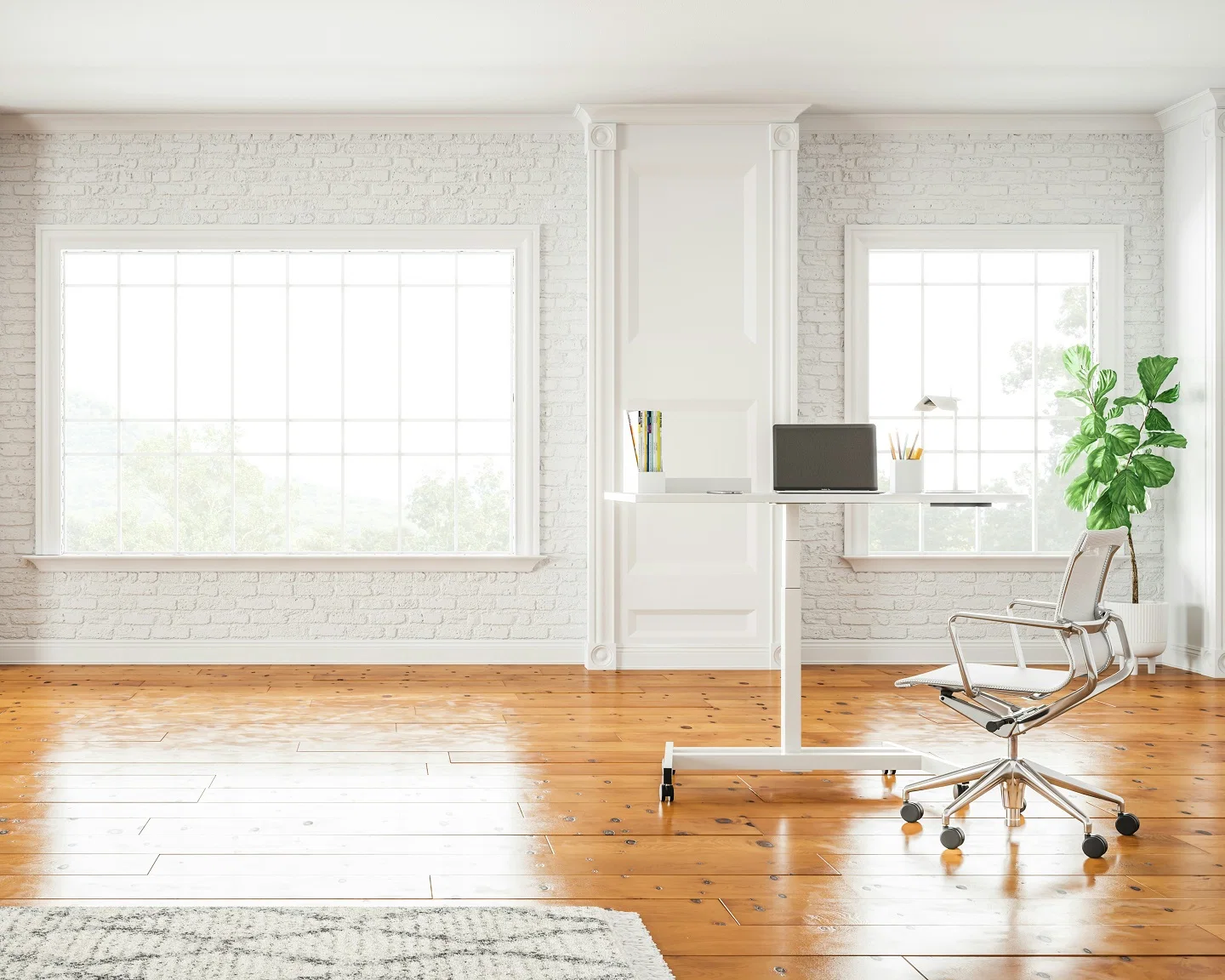
Hardwood Flooring: The right type of hardwood floor provides a smooth surface that allows office chairs to glide effortlessly, promoting ease of movement and reducing strain on users. High-quality hardwood flooring is exceptionally durable and can withstand the wear and tear of office chair casters over time. With proper maintenance and occasional refinishing, hardwood floors can last for decades. Hardwood flooring offers a classic and professional appearance that can enhance the overall aesthetic of an office environment, contributing to a positive work atmosphere.
Vinyl Flooring: Luxury vinyl tile (LVT) or vinyl plank flooring provides a smooth and resilient surface that allows office chairs to move freely without snagging or resistance. Vinyl flooring is highly durable and resistant to scratches, dents, and stains, making it an excellent choice for high-traffic areas such as offices. It can withstand the weight and repetitive movements of office chairs without significant damage. Vinyl flooring is easy to clean and maintain, requiring only regular sweeping and occasional mopping to keep it looking its best. This low-maintenance feature can save time and effort in busy office environments. Vinyl flooring is often more affordable than hardwood, making it a cost-effective option for office spaces where budget considerations are important. Vinyl flooring can be a good option for a small modern office, too, due to its easy installation.
What is the best flooring for an office?
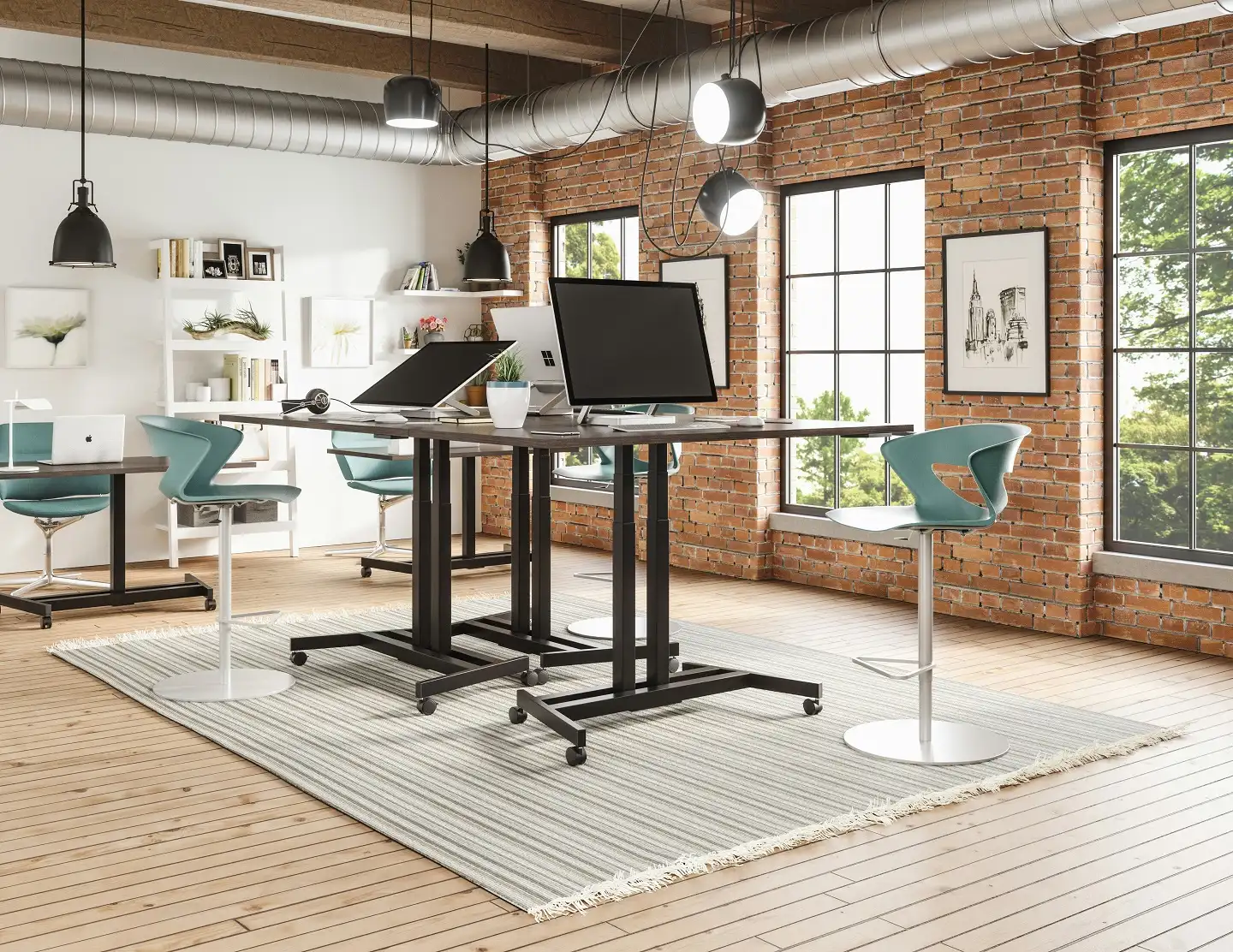
Different types of flooring material can be used under office chairs, but the question is that what is the best flooring material under an office chair?
- Carpet Tiles: These provide a soft surface that’s comfortable to walk on and reduces noise, which can be beneficial in busy office environments. They are easy to install and replace, making maintenance hassle-free. but, they can be susceptible to staining from spills, and they may absorb odors over time, especially in areas with high foot traffic. Carpets also can trap dust, allergens, and other particles, requiring regular vacuuming and cleaning to maintain air quality.
- Vinyl Flooring: Vinyl flooring is a tough and water-resistant flooring, making it ideal for areas prone to spills or high foot traffic. It’s easy to clean and comes in various styles, including ones that mimic the look of wood or stone. Some vinyl flooring products may contain volatile organic compounds or other chemicals that can emit odors and affect indoor air quality. While vinyl is durable overall, it can still be susceptible to scratches and damage from sharp objects or heavy furniture.
- Laminate Flooring: It’s durable and resistant to scratches, making it suitable for areas where heavy furniture or equipment may be moved around. It’s also easy to clean, making it low-maintenance. Laminate flooring is not as resistant to moisture as other options like vinyl or tile, so it’s important to promptly clean up spills to prevent damage. Unlike hardwood flooring, laminate cannot be refinished or sanded down to repair scratches or damage.
- Hardwood Flooring: Hardwood flooring offers a timeless and professional appearance. While it’s durable, it may require more maintenance to prevent scratches and water damage, but it can be refinished to extend its lifespan. Hardwood floors are susceptible to damage from moisture, such as warping or cupping, making them less suitable for areas prone to spills or high humidity. Hardwood flooring tends to be more expensive upfront compared to other options like laminate or vinyl.
- Tile Flooring: Tiles, whether ceramic or porcelain, are highly durable and resistant to stains and scratches. They’re suitable for areas where spills are common and can withstand heavy foot traffic. Grout lines between tiles can accumulate dirt and require regular cleaning and maintenance to keep them looking clean and prevent discoloration.
- Concrete Flooring: Polished concrete is extremely durable and easy to clean, making it suitable for high-traffic areas. It has a modern aesthetic and can be customized with stains or dyes. While polished concrete has a modern aesthetic, some may find it too cold or industrial-looking for certain office environments. Concrete can be unforgiving to stand on for long periods, so anti-fatigue mats may be necessary in areas where employees spend extended periods standing.
What flooring is the best for rolling chairs?
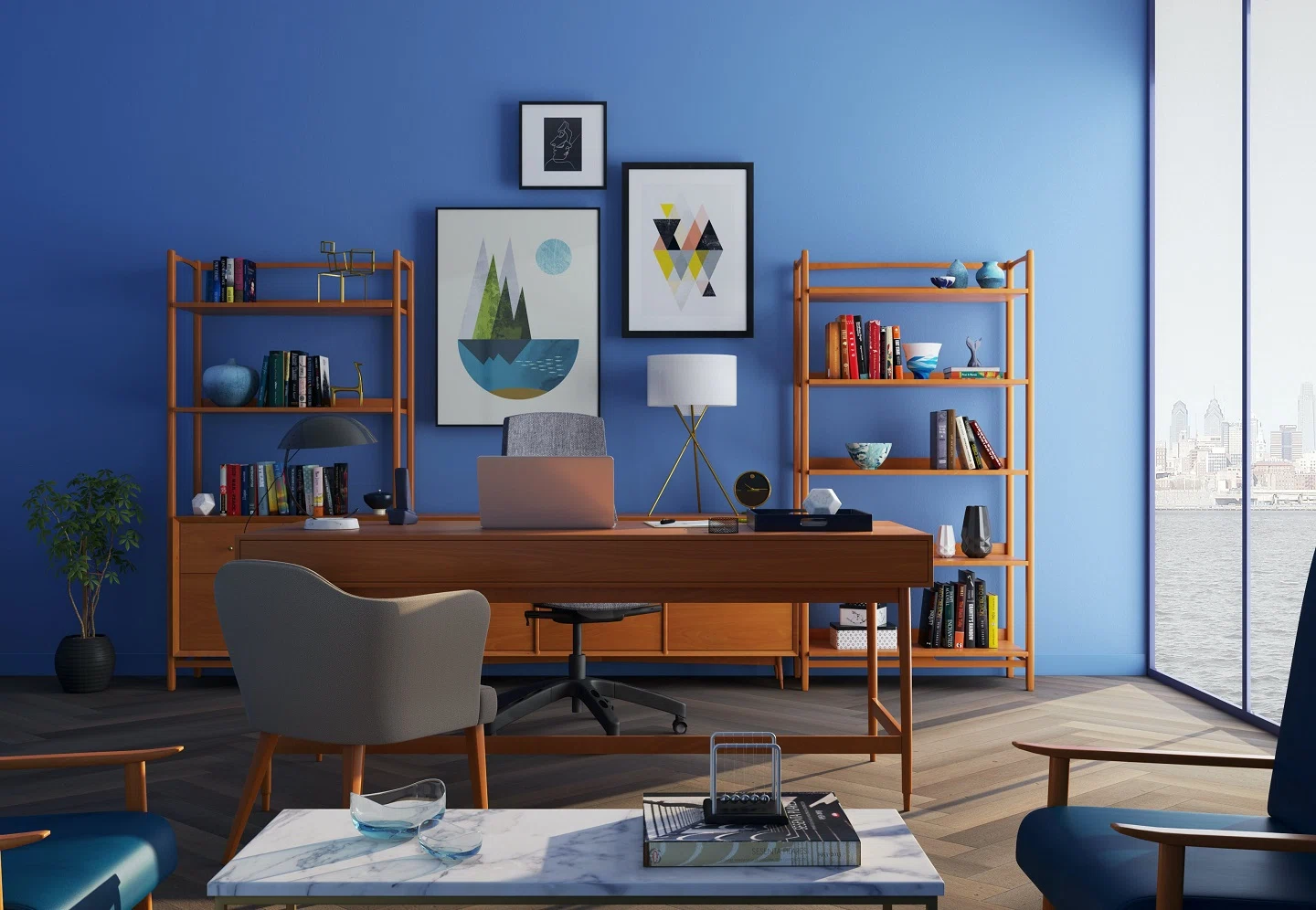
Among the listed flooring options, hardwood flooring and vinyl flooring (Luxury Vinyl Tile or Vinyl Plank) stand out as the top choices for rolling chairs, with a slight preference towards hardwood flooring. Here’s why:
Hardwood Flooring: Hardwood floors provide an exceptionally smooth surface that facilitates effortless movement of rolling chairs. The lack of seams or joints allows chairs to glide seamlessly, reducing strain on users and promoting ergonomic comfort. it is durability and resistance to wear and tear. It can withstand the repetitive movements and pressure exerted by rolling chairs without showing signs of damage. beauty and natural warmth of Hardwood flooring adds a touch of elegance and sophistication to any office environment. With proper care, hardwood flooring can last for generations, making it a sound investment for commercial spaces like offices.
Vinyl Flooring (Luxury Vinyl Tile or Vinyl Plank): Will office chair damage vinyl flooring or not? Luxury vinyl tile (LVT) or vinyl plank flooring offers a smooth and resilient surface that facilitates easy movement of rolling chairs. It provides a level of smoothness comparable to hardwood flooring, ensuring smooth gliding motion without resistance. Luxury vinyl flooring is highly durable and resistant to scratches, stains, and moisture, but not as much as hardwood flooring. It can withstand the rigors of daily use in office environments, including the movement of rolling chairs, without compromising its appearance or structural integrity. Vinyl flooring is often more budget-friendly compared to hardwood flooring, offering cost-effective solutions for commercial spaces. will office chair damage vinyl flooring
Hardwood Flooring for Office Chairs
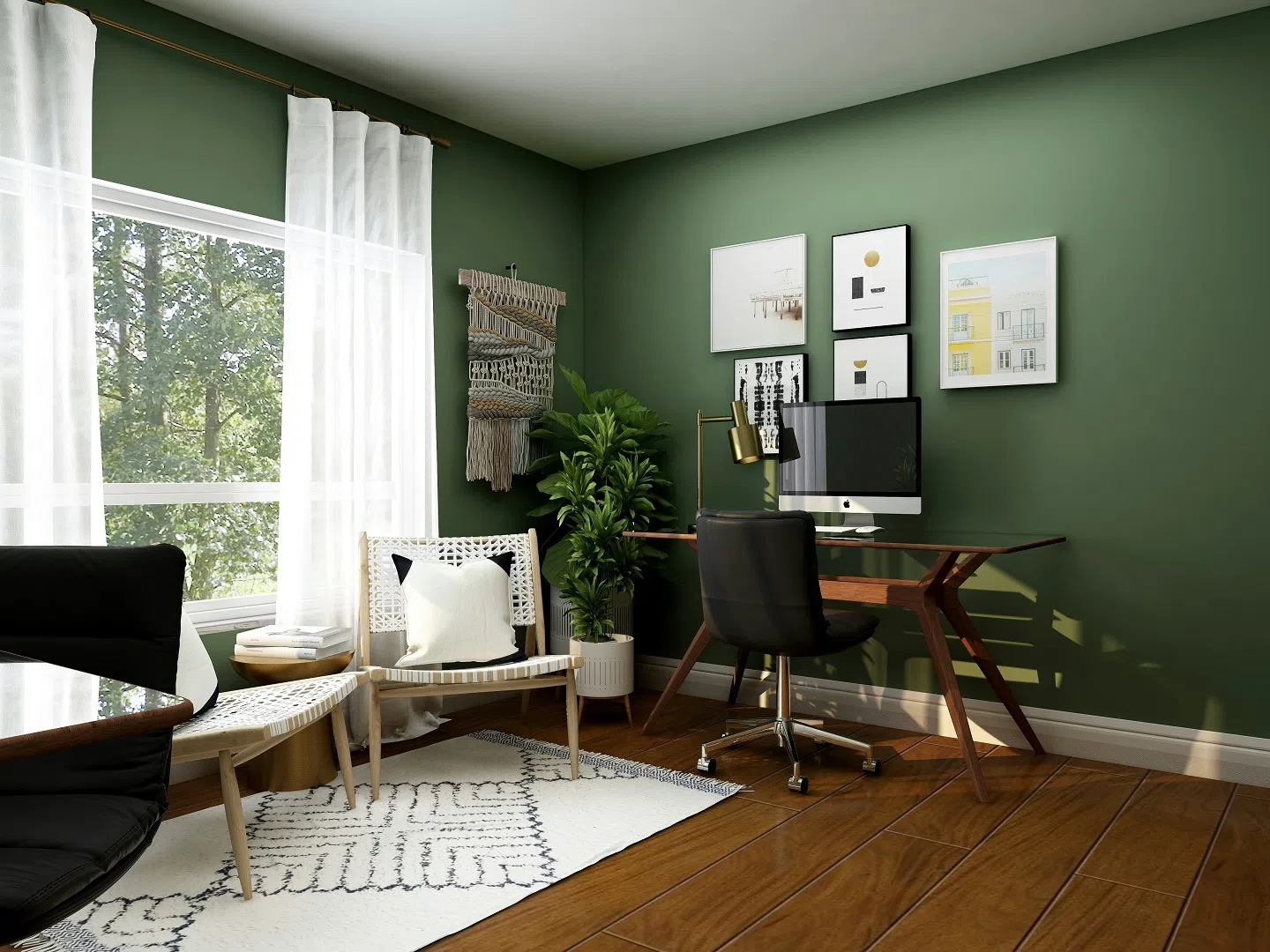
When it comes to embodying sophistication and a touch of vintage allure, hardwood flooring effortlessly claims the throne. Comprising carefully pieced wood planks that create a seamless, polished surface, hardwood floors are renowned for their enduring beauty. While their original purpose was structural, their transition to interior flooring was due to their unparalleled charm and durability.
Hardwood floors exude a professional and timeless look, elevating the aura of any office, especially when paired with rolling chairs. Regardless of your rolling chair’s design, hardwood floors are remarkably compatible with various chair types. The wood composition lends hardwood the ability to absorb heat generated by the friction of rolling chair wheels, keeping your workspace comfortable. Hardwood is designed to withstand varying degrees of weight, ensuring its durability against the rigors of rolling chairs.
The elegance of hardwood comes at a cost. Its initial investment is considerably higher compared to other flooring options. The constant friction of chair wheels against the wood might lead to scratches and compromise the pristine appearance. Defective chair wheels or uneven flooring might permanently damage the chair or the flooring.
Vinyl Flooring for Under Office Chairs
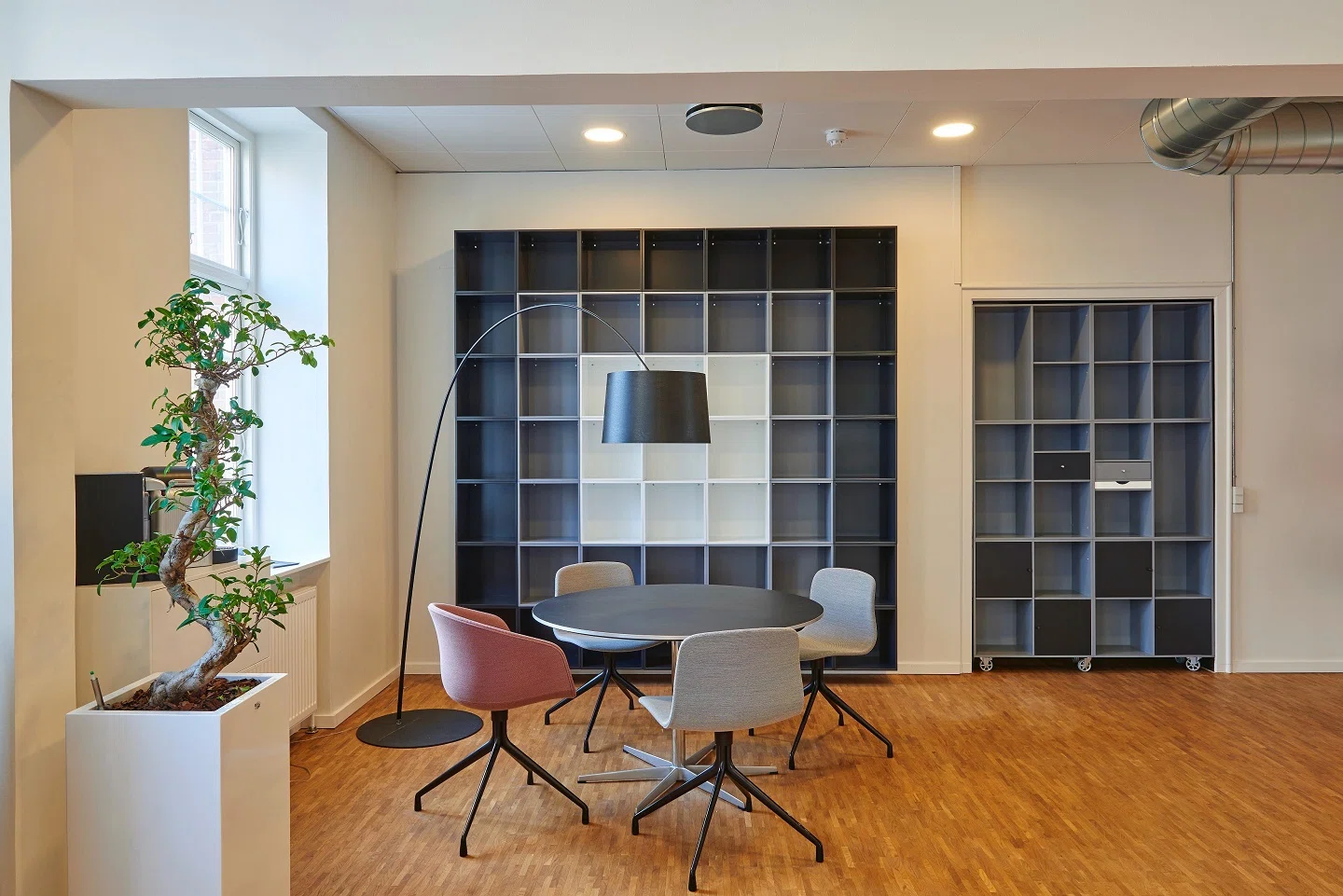
For those who seek affordability, durability, and an easy installation process, vinyl flooring emerges as a strong contender. In particular, luxury vinyl tiles and planks have gained popularity for their adaptability and resistance to rolling chairs and daily foot traffic. Moreover, they can mimic the appearance of natural materials, such as stone or wood, without the exorbitant price tag.
Opting for vinyl flooring can free up your budget for investing in a more comfortable and durable rolling chair. In the unfortunate event of damage due to rolling chair activity, vinyl flooring is relatively easy to replace, allowing you to maintain a pristine workspace. Vinyl’s smooth surface minimizes the impact on rolling chairs, reducing the chances of damage over time. While durable in its own right, vinyl may not match the longevity of hardwood or laminate flooring. Uneven subflooring can pose problems for vinyl flooring, particularly regarding the seamless rolling of chairs.
Laminate Flooring for Offices
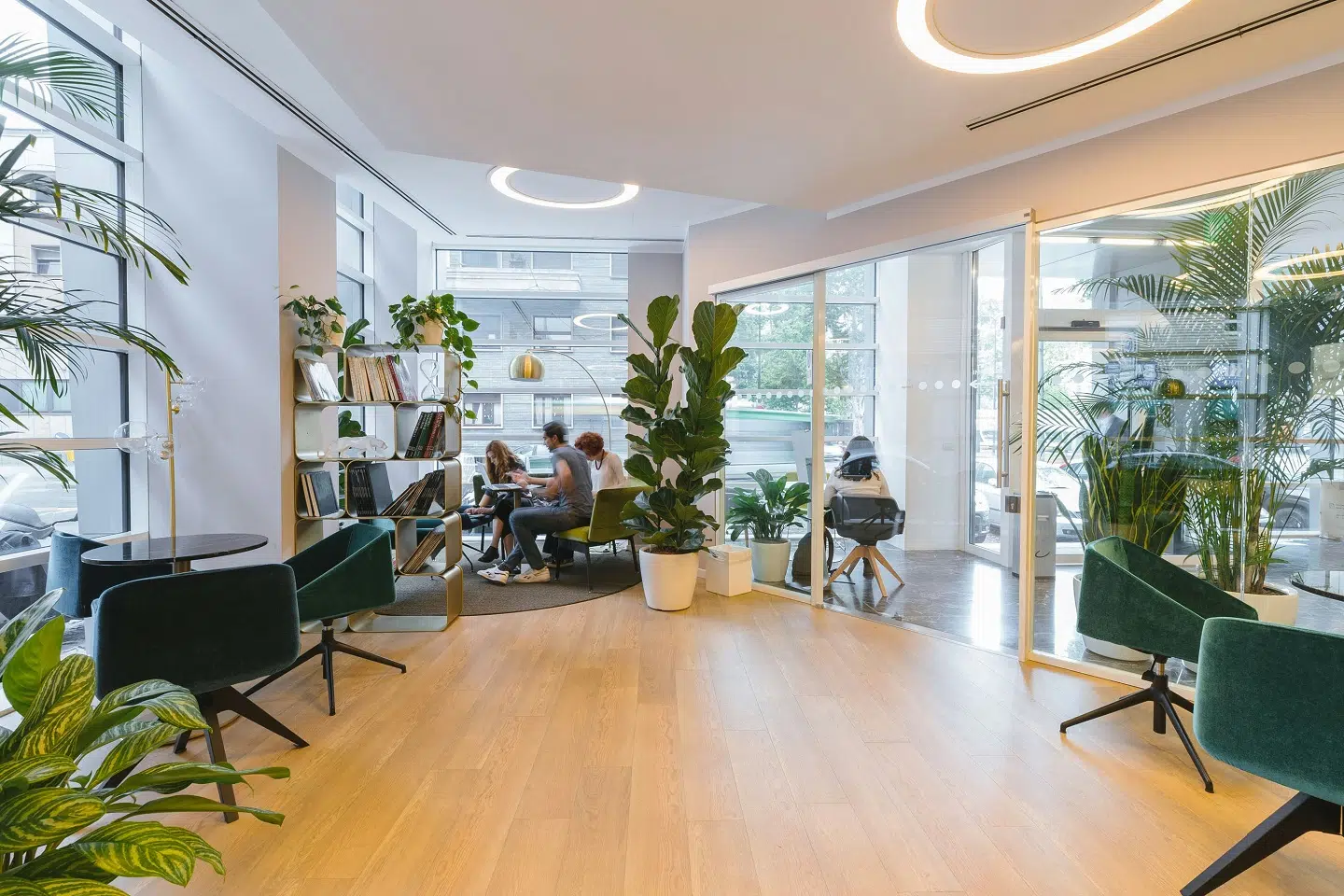
Laminate flooring, a hybrid creation composed of wood particle board, image layers, and a protective top layer, offers an intriguing balance of cost-effectiveness and durability. This option caters to those who crave the appearance of hardwood without its high price tag.
Laminate provides a budget-friendly alternative to hardwood while retaining many of its attributes. The upper layer of laminate facilitates smoother chair rolling compared to natural hardwood. It also plays well with various rolling chair models like hardwood. But, the smooth top layer of laminate may chip or scratch if exposed to sharp chair wheels. Besides, moisture can lead to uneven rolling, potentially impacting the comfort of your workspace.
Carpets for Office Chairs
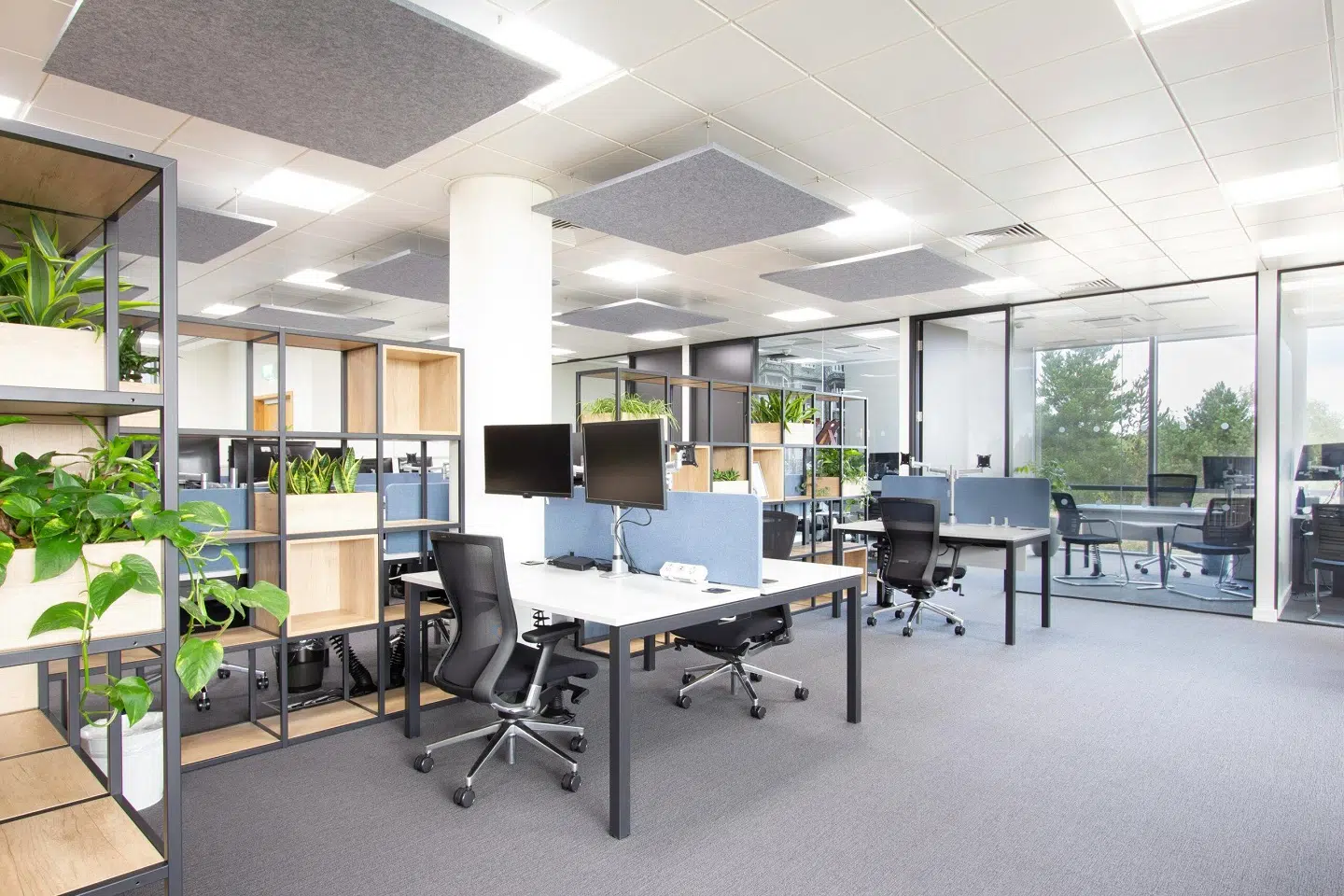
Carpet flooring is a common choice for commercial offices, offering various materials and textures. From nylon to wool, carpets provide warmth, comfort, and a noise-dampening effect. Soft carpets provide a cushioned landing in case of falls, ensuring safety while working. Carpet effectively muffles the noise generated by rolling chair wheels against a hard surface. But, consistent chair movement can lead to wear patterns and diminish the carpet’s appearance over time. Also, carpet fibers can become entwined with chair wheels, affecting the smoothness of rolling.
Conclusion
Ultimately, the flooring choice for rolling office chairs hinges on the perfect balance between aesthetics, functionality, and budget. Each flooring type offers unique advantages and drawbacks, catering to different priorities. While hardwood exudes timeless elegance and vinyl embraces affordability and ease, laminate balances cost and durability. On the other hand, carpets wrap you in comfort and tranquility. Laminate emerges as the champion for the best blend of quality and affordability. It mirrors the sturdiness of hardwood, ensuring smooth chair movement while adding a polished, professional touch to your workspace—all without breaking the bank.


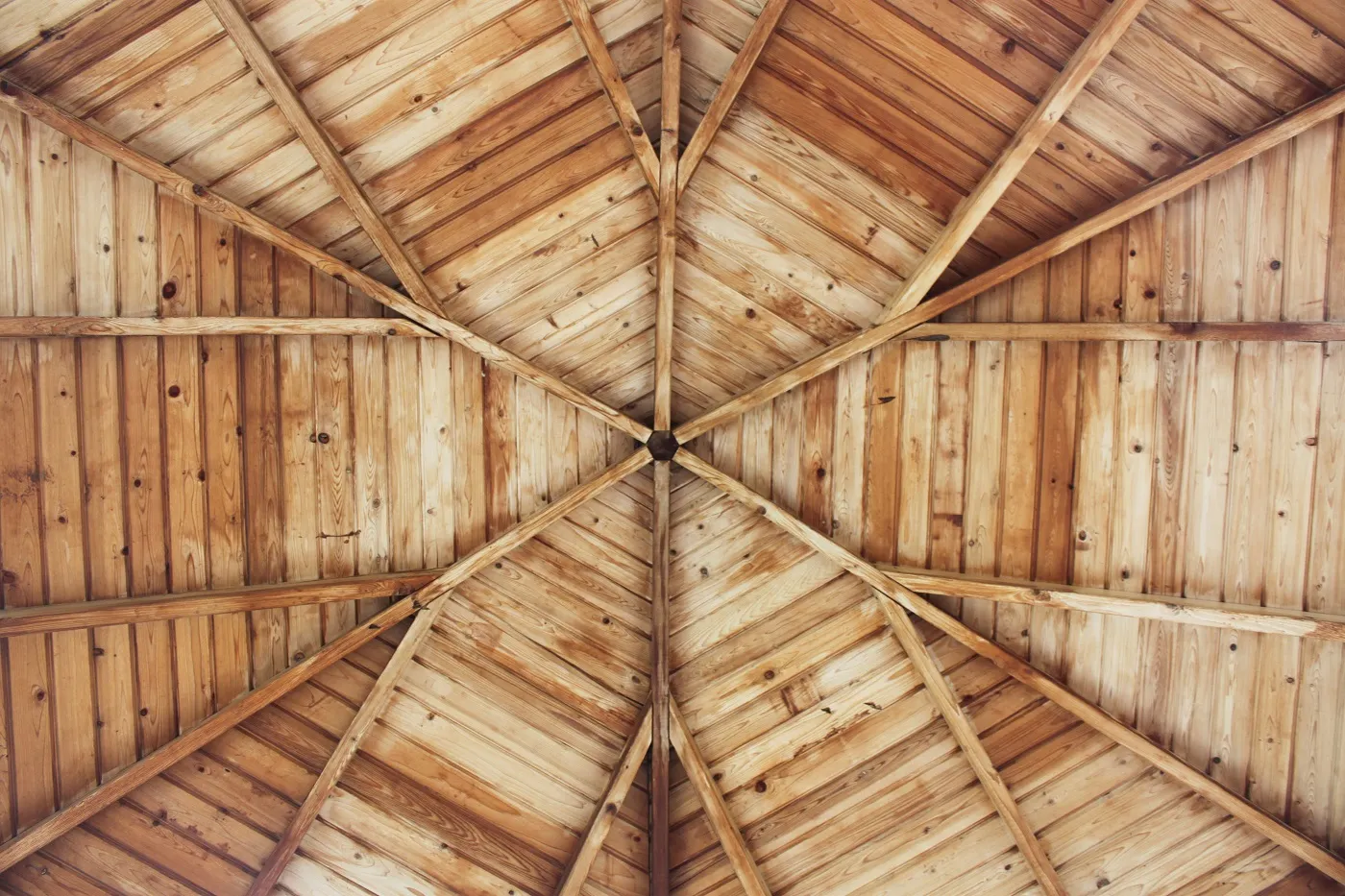
Did you find what you were looking for?